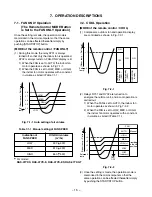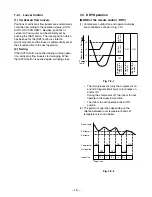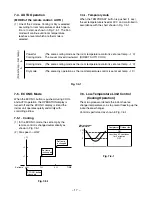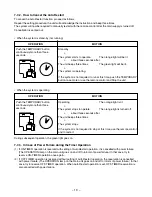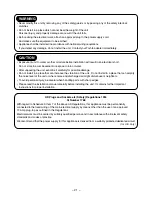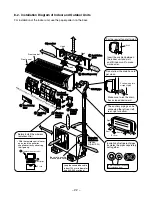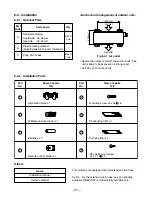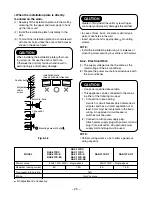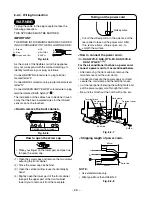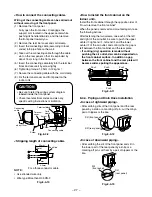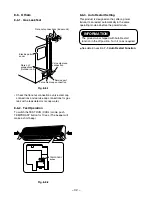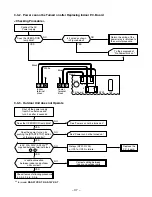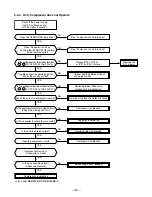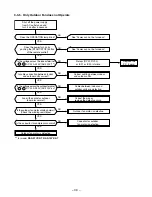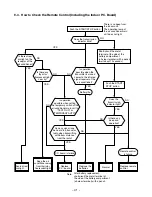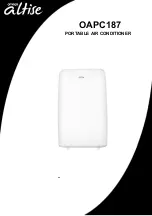
–
2
9
–
8-4-6. Drainage
(1) Run the drain hose sloping downwards.
NOTE :
•
Hole should be made at a slight downward slant to
the outdoor side.
50 mm
or more
Do not rise the drain hose.
Do not form the drain hose
into the wared shape.
Do not put the
drain hose end
into water.
Do not put the drain
hose end in the
drainage ditch.
Fig. 8-4-19
Space for pipes
Wall
Drain guide
Fig. 8-4-17
(2) Put water in the drain pan and make sure that the
water is drained outdoors.
(3) When connecting extension drain hose, insulate
the connecting part of extension drain hose with
shield pipe.
Shield pipe
Extension drain hose
Inside the room
Drain hose
Fig. 8-4-18
CAUTION
Arrange the drain pipe for proper drainage from
the unit.
Improper drainage can result in damage to
property.
This air conditioner has the structure designed to
drain water collected from dew, which forms on the
back of the indoor unit, to the drain pan.
Therefore, do not store the power cord and other
parts at a height above the drain guide.
8-5. Outdoor Unit
Installation place
•
A place which provides the spaces around the
outdoor unit as shown in the diagram in page 19.
•
A place which can bear the weight of the outdoor
unit and does not allow an increase in noise level
and vibration.
•
A place where the operation noise and discharged
air do not disturb your neighbors.
•
A place which is not exposed to a strong wind.
•
A place free of a leakage of combustible gases.
•
A place which does not block a passage.
•
When the outdoor unit is to be installed in an
elevated position, be sure to secure its feet.
•
An allowable length of the connecting pipe is up to
10 m.
•
An allowable head level is up to 5 m.
•
A place where the drain water does not raise any
problem.
CAUTION
(1) Install the outdoor unit without anything
blocking the air discharging.
(2) When the outdoor unit is installed in a place
exposed always to a strong wind like a coast or
on a high story of a building, secure the normal
fan operation using a duct or a wind shield.
(3) Specially in windy area, install the unit to
prevent the admission of wind.
Fig. 8-5-1
CAUTION
Installation in the following places may result in
trouble. Do not install the unit in such places.
•
A place full of machine oil.
•
A saline place such as coast.
•
A place full of sulfide gas.
•
A place where high-frequency waves are likely
to be generated as from radio equipment,
welders, and medical equipment.
Strong
wind

